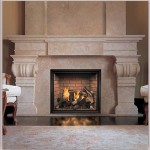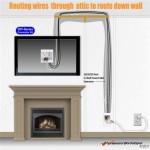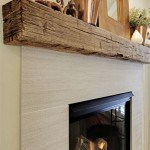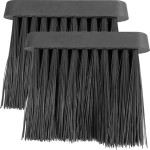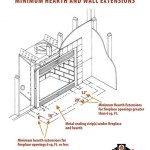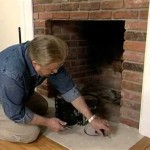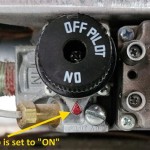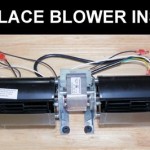Fireplace Blower Motor Troubleshooting: A Comprehensive Guide
Fireplace blower motors are integral components of many modern fireplace systems. They enhance the efficiency of heat distribution, circulating warm air from the fireplace into the surrounding living space. When a fireplace blower motor malfunctions, it can significantly reduce the fireplace's effectiveness, leaving a room feeling colder than it should. This article provides a comprehensive guide to troubleshooting common problems associated with fireplace blower motors, enabling informed diagnosis and potential solutions. The principles herein apply to a wide range of fireplace blower motor designs, although specific configurations may vary depending on the manufacturer and model.
Identifying Common Symptoms of Fireplace Blower Motor Problems
Recognizing the symptoms of a faulty fireplace blower motor is the first step in effective troubleshooting. Several telltale signs can indicate a problem requiring investigation. These include a motor that fails to start, a motor that operates intermittently, unusual noises emanating from the motor housing, and a reduction in airflow despite the motor running. Each of these symptoms can point to different underlying issues that warrant specific troubleshooting steps.
A motor that fails to start altogether is often indicative of a power supply problem, a faulty switch, or a completely failed motor winding. An intermittent motor, cycling on and off unexpectedly, could suggest a loose connection, a failing capacitor, or thermal overload protection kicking in due to excessive heat. Unusual noises, such as grinding, squealing, or humming, often indicate mechanical problems, like worn bearings or obstructions within the blower assembly. Reduced airflow, even with the motor running, can stem from a partially blocked blower wheel, a worn-out motor, or restrictions in the ductwork.
Before embarking on detailed troubleshooting, it's advisable to visually inspect the blower assembly. Look for obvious signs of damage, such as burnt wires, loose connections, or debris obstructing the blower wheel. A careful visual inspection can often reveal the source of the problem quickly, saving time and effort in the troubleshooting process. Also, checking the breaker or fuse responsible for the fireplace circuit is a necessary initial step.
Troubleshooting the Electrical Components
Addressing electrical issues is crucial when diagnosing fireplace blower motor problems. Since the motor relies on a consistent and correct electrical supply, any disruption can lead to malfunctions. Focus should be placed on examining the power source, the switch or control panel, and the wiring connections leading to the motor.
The first step involves verifying the power supply to the fireplace unit. Use a multimeter to test the voltage at the outlet or junction box supplying power to the fireplace. The voltage reading should match the specified voltage for the fireplace, typically 120 volts AC in North America. If the voltage is significantly lower or absent, investigate the circuit breaker or fuse box. A tripped breaker or blown fuse indicates an overload or short circuit, which must be resolved before proceeding. Remember to disconnect power before conducting any electrical tests.
Next, inspect the switch or control panel that operates the blower motor. Many fireplaces use a simple on/off switch, while others have more sophisticated control panels with variable speed settings. Test the switch using a multimeter to ensure it is properly conducting electricity when in the "on" position. A faulty switch can prevent the motor from receiving power, even if the motor itself is in good working order. If the fireplace uses a thermostatic control, verify that it is functioning correctly by adjusting the temperature setting and observing whether the motor responds.
Finally, carefully examine all wiring connections leading to the blower motor. Look for loose connections, corroded terminals, or damaged wires. Loose connections can cause intermittent operation, while corroded terminals can impede the flow of electricity. Damaged wires, with exposed conductors, pose a safety hazard and can cause short circuits. Tighten any loose connections, clean corroded terminals with a wire brush, and replace any damaged wires. Ensure all connections are secure and properly insulated.
Capacitors are often used in blower motors to assist with starting and running. A failing capacitor can cause the motor to hum but not start, or it may reduce the motor's efficiency. Testing a capacitor requires a multimeter with capacitance measurement capability. However, a visual inspection can sometimes reveal a bulging or leaking capacitor, which is a clear indication of failure. Replacing a faulty capacitor is a relatively straightforward repair that can often restore the motor to proper operation.
Addressing Mechanical Problems
Mechanical issues can also contribute to fireplace blower motor malfunctions. These problems typically involve the blower wheel, bearings, or physical obstructions that impede the motor's rotation. Regular maintenance, such as cleaning and lubrication, can help prevent mechanical problems from developing. However, when these issues arise, targeted troubleshooting is necessary.
Begin by inspecting the blower wheel for any obstructions. Debris, such as dust, dirt, or small objects, can accumulate within the blower wheel, restricting airflow and causing the motor to work harder. Remove any visible debris using a brush or vacuum cleaner. If the blower wheel is difficult to access, carefully disassemble the blower assembly to gain better access. Ensure the power is disconnected before disassembling the unit.
Next, check the bearings for wear and tear. The bearings are responsible for supporting the motor shaft and allowing the blower wheel to rotate smoothly. Over time, bearings can wear out, causing friction and noise. To check the bearings, manually rotate the blower wheel. If the wheel feels rough or makes grinding noises, the bearings are likely worn. Lubricating the bearings with a suitable lubricant can sometimes alleviate the problem temporarily. However, if the bearings are severely worn, replacement is the best long-term solution. Accessing the bearings may require disassembling the motor housing.
Inspect the motor shaft for any signs of bending or damage. A bent shaft can cause the blower wheel to wobble, leading to vibration and noise. If the shaft is bent, it may be possible to straighten it using specialized tools. However, if the damage is severe, replacing the motor is often the most practical option. When reinstalling the blower wheel, ensure it is properly aligned and secured to the motor shaft. A misaligned blower wheel can cause imbalance and premature wear on the motor bearings.
Excessive heat can also cause mechanical problems. Overheating can occur if the blower motor is working too hard due to restrictions in airflow or if the motor is not properly ventilated. Check for any blockages in the ductwork that could be restricting airflow. Ensure the motor is properly ventilated, allowing heat to dissipate effectively. If the motor is consistently overheating, it may be necessary to upgrade to a more powerful motor or improve the ventilation system.
In cases of severe motor damage, replacement may be the most cost-effective solution. Before replacing the motor, ensure the new motor is compatible with the fireplace unit. Check the voltage, amperage, and physical dimensions of the old motor and match them to the specifications of the new motor. Installing an incompatible motor can damage the fireplace unit and void the warranty.
Regular maintenance can significantly extend the lifespan of a fireplace blower motor. Cleaning the blower assembly annually, lubricating the bearings periodically, and inspecting the wiring connections regularly can help prevent many common problems. By implementing a proactive maintenance schedule, fireplace owners can ensure their blower motors operate efficiently and reliably for years to come.

Troubleshooting A Defective Blower Fan Kit

Troubleshooting A Defective Blower Fan Kit

Electric Fireplace Common Problems And Their Solutions

Noisy Gas Fireplace Blower Here S How To Replace It Diy

Troubleshooting A Defective Blower Fan Kit

Troubleshooting A Defective Blower Fan Kit

When Does A Fireplace Blower Turn On Or Off Tips

Electric Fireplace Troubleshooting Doityourself Com Community Forums

Quick Fixes For Common Fireplace Blower Problems Doityourself Com

When Does A Fireplace Blower Turn On Or Off Tips
Related Posts

